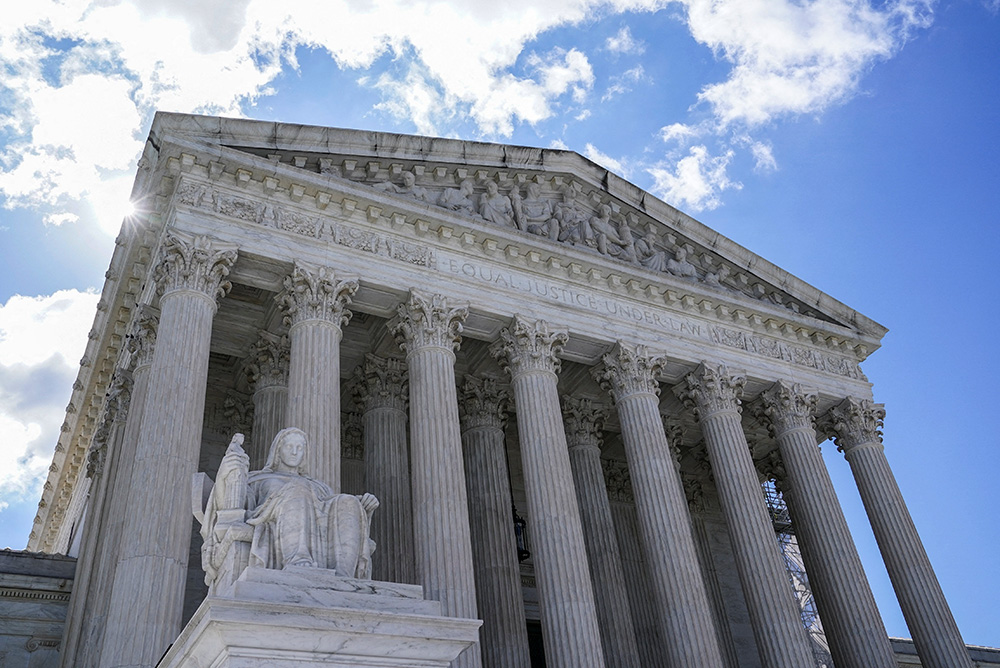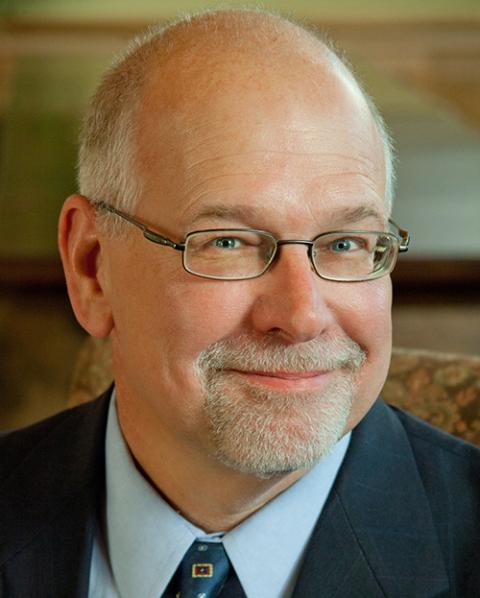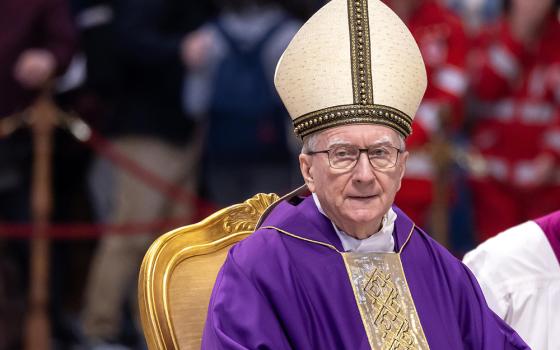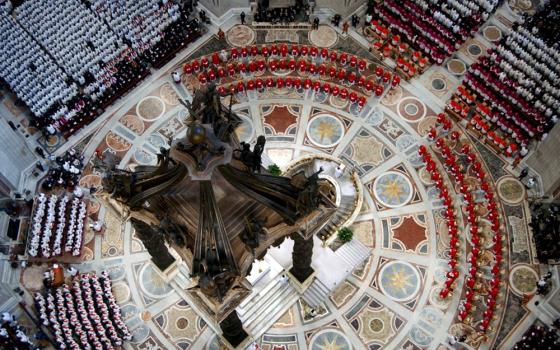
The U.S. Supreme Court building is pictured in Washington June 24. (OSV News/Reuters/Nathan Howard)
Attorneys representing what would be the nation's first religiously-affiliated public charter school in Oklahoma have petitioned the U.S. Supreme Court to overturn the state's high court ruling in June that found the school unconstitutional.
In their petition, filed Oct. 7, attorneys for St. Isidore of Seville Catholic Virtual Charter School argue that the First Amendment of the U.S. Constitution protects the right of religious individuals and organizations to participate equally in state programs that serve the public.
John Meiser, director of the Lindsay and Matt Moroun Religious Liberty Clinic at the University of Notre Dame, which is representing the school, told National Catholic Reporter that recent Supreme Court decisions support his position that St. Isidore has a right to participate in Oklahoma's charter school program.
"We think it's a good program, but what the state can't do, what the First Amendment doesn't allow the state to do, is to open up that invitation and say anyone can come in, except if you're religious," Meiser said.
On June 25, the Oklahoma Supreme Court voted 7-1 that the Statewide Virtual Charter School Board's decision in 2023 to approve the Catholic charter school's application violated the U.S. Constitution's Establishment Clause, which prohibits the government from establishing religion.
The state high court also determined that St. Isidore violated provisions of the Oklahoma Constitution and the state's charter school law that explicitly prohibit public money from being used to support sectarian activities.
'There's a hunger for this kind of education in Oklahoma,' said Michael Scaperlanda, chancellor of the Oklahoma City Archdiocese.
St. Isidore of Seville Catholic Virtual Charter School was set to open this fall, operated by the Oklahoma City Archdiocese and the Tulsa Diocese, with religious teaching as part of its curriculum.
Michael Scaperlanda, the chancellor of the Oklahoma City Archdiocese, told NCR that more than 250 students had been signed up for the all-virtual school, which would primarily serve rural families in Oklahoma. He said the school had also attracted "some very good faculty" who believed in the school's mission.
"Fortunately for us, they are attracted enough by what we're trying to do that I think most of them are willing to come back if the U.S. Supreme Court decides we can [open the school]," Scaperlanda said.
If the Supreme Court, which began its new term Oct. 7, decides to hear the case, it could be poised to issue a landmark ruling on whether taxpayer money can be used to support parochial schools, a decision that would likely have significant ramifications for the separation of church and state.
Meiser suggested there "is nothing unusual" about St. Isidore's request to operate a taxpayer-funded Catholic school through Oklahoma's charter school law. He noted that the federal and state governments routinely contract with private organizations, including religious entities, to provide a host of social services that include homeless shelters and refugee resettlement programs.
"The point of this project has nothing to do with setting precedent in the law," Meiser said. "There wouldn't be a case if it weren't for the attorney general who chose to sue to block this school from opening."
In October 2023, Oklahoma Attorney General Gentner Drummond, a conservative Republican, petitioned the Oklahoma Supreme Court to stop what he described as the state's "unlawful sponsorship" of a sectarian school.
In a prepared statement on Oct. 7 responding to the petitions filed at the U.S. Supreme Court by attorneys representing St. Isidore and the Oklahoma Statewide Charter School Board, Drummond vowed to "vigorously defend" the religious liberty of Oklahomans.
"This unconstitutional scheme to create the nation's first state-sponsored religious charter school will open the floodgates and force taxpayers to fund all manner of religious indoctrination, including radical Islam or even the Church of Satan," Drummond said.
Meiser argued that the attorney general's position "is simply wrong," and added that St. Isidore is not suggesting that Oklahoma can establish government-run religious schools where children would be enrolled against their parents' wishes.
Advertisement
"That is not what's happening here," Meiser said. "This is a privately operated school that will receive funding from the state to allow children, if their families want them to, to attend, to give them a new option, but no one has to take that option."
Scaperlanda said the experience of remote learning during the COVID-19 pandemic in 2020 convinced church officials that a virtual charter school like St. Isidore could better serve students in rural areas.
"We've struggled for years to think about how to deliver a good education to rural communities because it's not cost-effective for the traditional brick-and-mortar school to be in a rural area," said Scaperlanda, who added that it would not be difficult to open St. Isidore if the nation's high court rules in its favor.
"I think there's a hunger for this kind of education in Oklahoma," he said.









